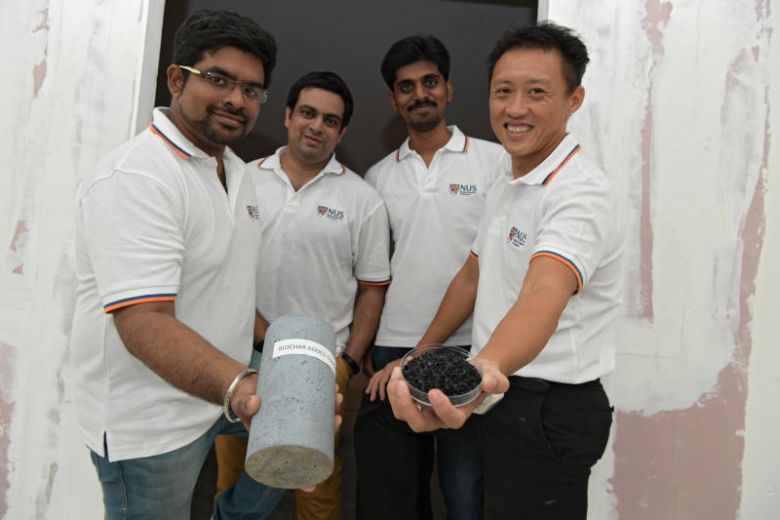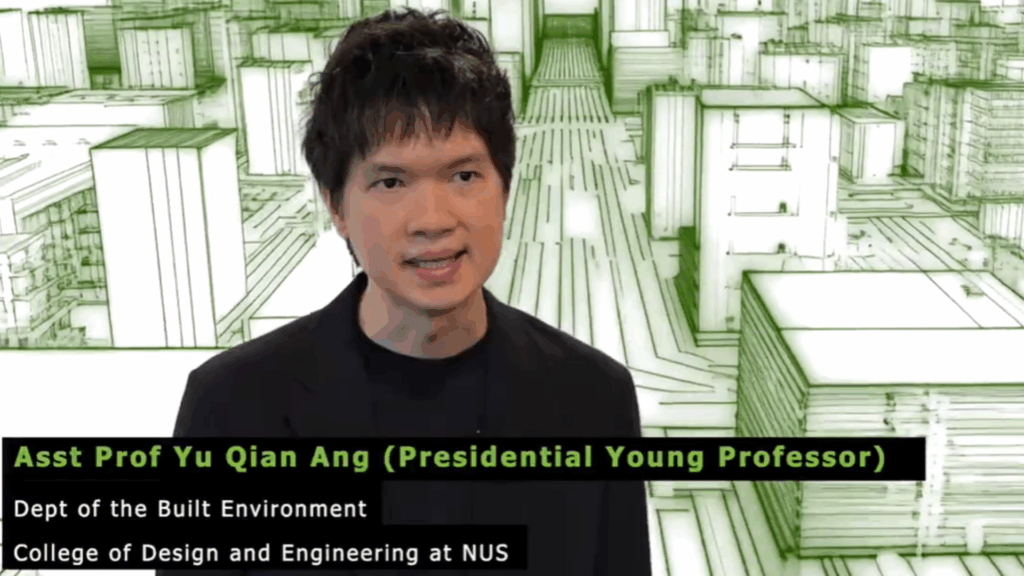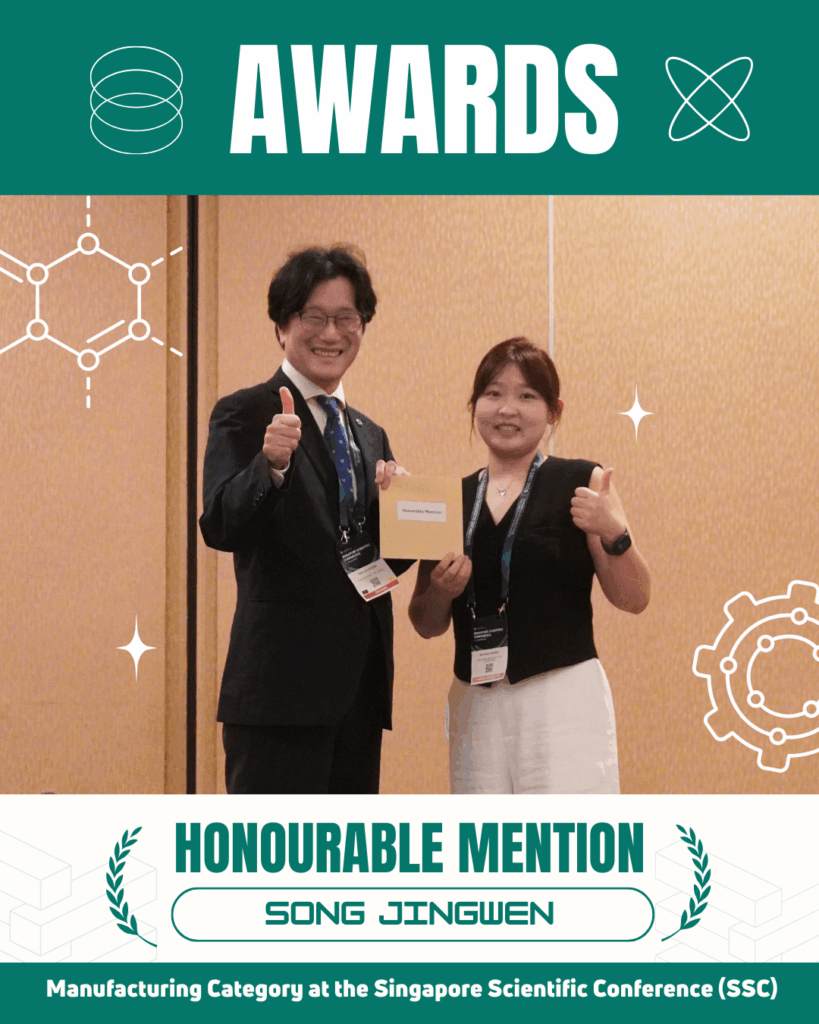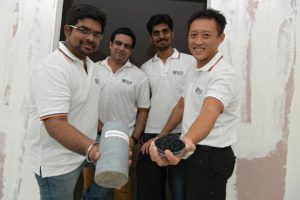
“How can biological waste be recycled into high performance and smart construction materials?”
In the light of sustainability and circular economy, this is the question that motivates a team from the Smart Materials Laboratory of the Department of Building. Led by Associate Professor Kua Harn Wei, the team specialises in biochar concrete and life cycle sustainability assessment.
In the last 4 years, the team has charted new research directions on biochar concrete. Presently, the team is one of the world’s leading groups on biochar concrete and its projects were funded by organizations such as the Ministry of Education, National Research Foundation and National Additive Manufacturing Innovation Cluster (NAMIC). Recently, the team also secured funding to work on 3D printing with Omya, a world leader in the production of industrial minerals.
The team’s novel research results are widely published in top-tiered academic journals in the fields of construction materials, waste management and policies. They have filed for 5 patent applications to date. Two of their papers were twice nominated for the prestigious Graedel Prize of the International Society for Industrial Ecology in 2017 and 2018. In 2018, their invention on biochar concrete was covered by Channel News Asia and Straits Times. Recently, two of their articles have been included in the “Most Cited Articles” (since 2017) lists of the respective top-tiered academic journals; they are
- Gupta, S., Kua, H.W. and Low, C.Y., 2018. Use of biochar as carbon sequestering additive in cement mortar. Cement and concrete composites, 87, 110-129
- Huang, B., Wang, X., Kua, H., Geng, Y., Bleischwitz, R. and Ren, J., 2018. Construction and demolition waste management in China through the 3R principle. Resources, Conservation and Recycling, 129, 36-44.
The team has presented their results in top conferences and seminars around the world; many of these are invited, plenary or keynote presentations. Associate Professor Kua is also serving as a Board member of the International Biochar Initiative, and a Steering Committee member on Sustainable Cities and Landscapes under the Association of Pacific Rim Universities (APRU), in which he helps to promote waste-derived sustainable building materials. He has also been invited by the European Structural Integrity Society (Founded in 1978) to teach a course on biochar concrete at the upcoming 1st Virtual Summer School on innovative concrete.
Dr. Alexander Lin is co-leading an effort to collaborate with local organizations to apply biochar concrete to 3D-printing of urban farming facilities.
Recently, Dr. Souradeep Gupta, who graduated from the Department, led a team to successful completion of the NUS Graduate Research Innovation Programme (GRIP) and started a spinoff, Biochar Innovations Pte. Ltd. The goal of the spinoff is to facilitate, accelerate and broaden the use of customised biochar systems in mortar and concrete, for structural and non-structural purposes. Associate Professor Kua is the technical advisor for this spinoff.
With passion and dedication, the team will continue to contribute to global knowledge in biochar and construction materials, by pushing the boundary and creating “designer” biochar that meets the needs of next-generation built environment.
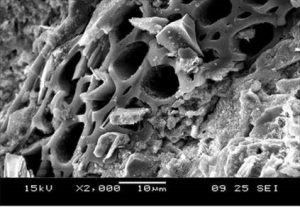
Porous biochar particles next to cement matrix, as seen under a Scanning Electronic Microscope.
Read more about this achievement and discovery here: https://www.straitstimes.com/singapore/nus-team-develop-new-method-to-strengthen-building-structures-by-mixing-wood-waste-with


